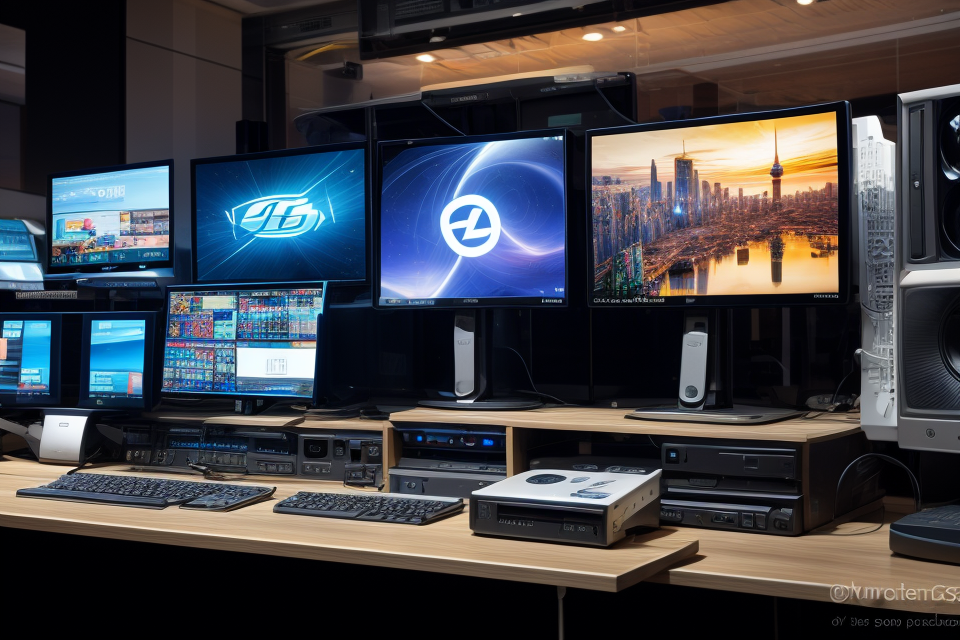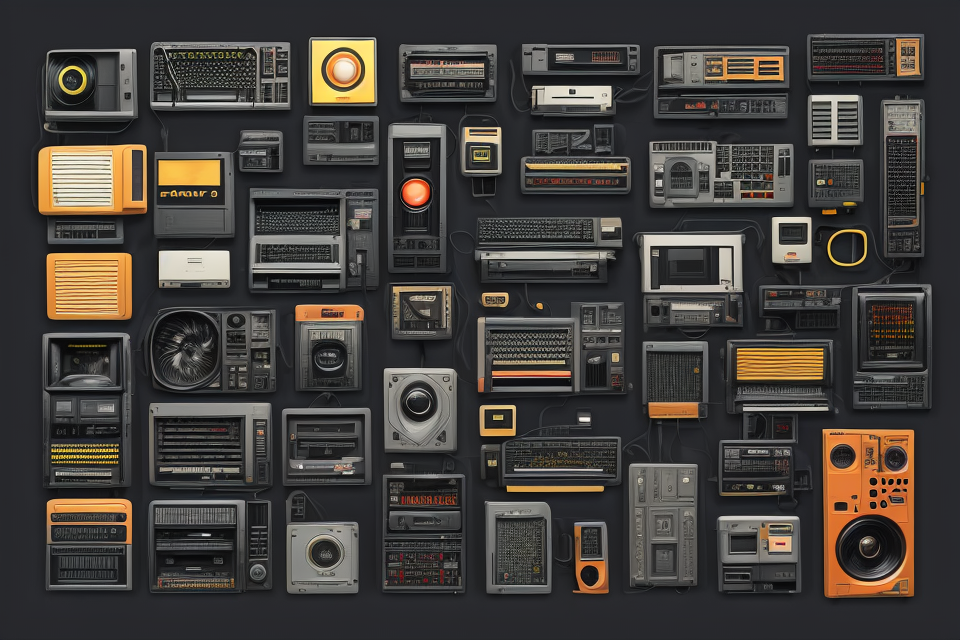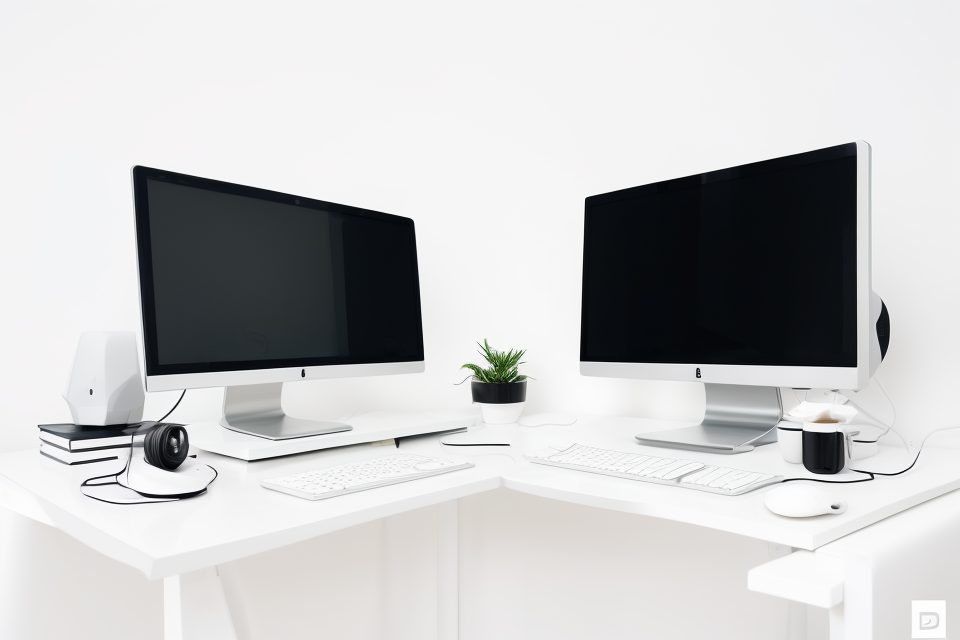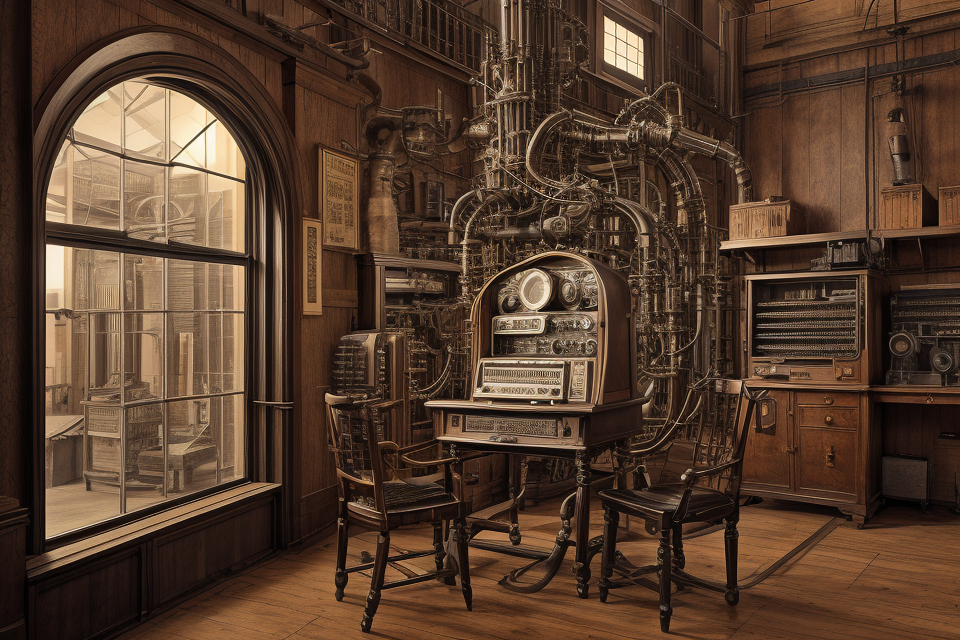Welcome to the fascinating world of computers! In today’s fast-paced digital age, computers have become an integral part of our lives. With so many different types of computers available, it can be overwhelming to choose the right one for your needs. In this article, we will explore the three most common types of computers and their unique features. Get ready to deep dive into the world of computers and discover the perfect machine for you!
What are Computers?
The Definition of Computers
Computers are electronic devices that can process, store, and transmit information. They have become an integral part of modern life, enabling us to communicate, work, learn, and entertain ourselves in ways that were once unimaginable. In this section, we will define what a computer is and explore its various functions and capabilities.
Evolution of Computers
The evolution of computers has been a long and fascinating journey, spanning over a century of technological advancements. From the first electronic digital computers to the present day, computers have come a long way, and their impact on society has been profound. In this section, we will take a closer look at the key milestones in the development of computers, including the invention of the microprocessor and the advent of the internet. We will also examine how these technological advancements have shaped the world we live in today.
The Three Common Types of Computers
The three common types of computers are desktop computers, laptops, and mobile devices. Each type has its own advantages and disadvantages, and the choice of which type to use depends on the intended use of the computer. Desktop computers are powerful and versatile but can be bulky and noisy. Laptops are portable but can be more expensive and have limited processing power. Mobile devices are highly accessible and portable but have limited storage and processing power. When choosing a computer, it is essential to consider factors such as budget, purpose, and features, including processing power, storage, and graphics card.
Type 1: Desktop Computers
Definition and Uses
Explanation of what desktop computers are and their common uses
Desktop computers are powerful computing devices designed to meet the demands of everyday computing tasks. They are often used for tasks such as browsing the internet, editing documents, and playing video games. Desktop computers are known for their ability to handle multiple applications at once and their ability to store large amounts of data.
Description of the physical appearance and components of desktop computers
Desktop computers typically have a rectangular shape and are composed of several components, including a monitor, keyboard, mouse, and tower case. The monitor is responsible for displaying visual output, while the keyboard and mouse are used for input. The tower case houses the central processing unit (CPU), memory, and storage devices.
Advantages and Disadvantages
Pros and cons of using desktop computers, such as their durability, versatility, and processing power
One of the main advantages of desktop computers is their durability. They are built to last and can handle heavy use for many years. Desktop computers are also highly versatile, capable of running a wide range of software and performing a variety of tasks. In addition, desktop computers are often equipped with powerful processors and large amounts of memory, making them ideal for tasks that require a lot of processing power.
Cons, such as their size, cost, and noise level
One of the main disadvantages of desktop computers is their size. They are often bulky and take up a lot of space, making them difficult to move around. Desktop computers can also be expensive, especially when high-end components are chosen. Finally, desktop computers can be noisy, especially when the fans in the tower case are running at high speeds.
Type 2: Laptops
Laptops, also known as notebook computers, are portable personal computers that can be easily carried and used in a variety of settings. They are designed to be compact and lightweight, making them ideal for individuals who need to work or study on the go. Laptops are commonly used for personal and
Type 3: Mobile Devices
Mobile devices, such as smartphones and tablets, are portable computing devices that allow users to access the internet, communicate with others, and perform various tasks on the go. These devices are designed to be lightweight and compact, making them easy to carry and use in different environments.
Physical Appearance and Components
Mobile devices typically have a touchscreen display, a battery, a processor, memory, storage, and connectivity options such as Wi-Fi and cellular data. They are designed to be held in one hand and operated with the other, making them easy to use on the go. Some mobile devices also have a camera, microphone, and other sensors that allow users to capture and share multimedia content.
One of the main advantages of mobile devices is their portability, which allows users to access the internet and perform tasks from anywhere at any time. They are also highly accessible, with many people using them as their primary computing device. In addition, mobile devices are often more affordable than desktop and laptop computers, making them an attractive option for budget-conscious consumers.
However, mobile devices also have some disadvantages. One of the main drawbacks is their limited processing power, which can affect their performance when running resource-intensive applications. They also have limited storage compared to desktop and laptop computers, which can be a concern for users who need to store large amounts of data. Additionally, mobile devices are more vulnerable to security threats such as malware and phishing attacks, which can compromise user privacy and data security.
Factors to Consider When Choosing a Computer
Budget
When it comes to purchasing a computer, budget is a crucial factor to consider. The price of a computer can vary greatly depending on the type and the specifications it offers. Here are some key points to keep in mind when setting a budget for your new computer:
- Set a realistic budget: Determine how much you are willing to spend on a computer. Consider your financial situation and how much you can afford to spend.
- Compare prices: Research different types of computers and compare their prices. Look for deals and discounts to help you stay within your budget.
- Consider the long-term costs: In addition to the initial purchase price, consider the long-term costs of owning a computer. This includes the cost of maintenance, upgrades, and repairs.
- Balance cost and performance: It’s important to find a balance between cost and performance. While a more expensive computer may offer better performance, it may not be necessary for your needs. Consider what you will be using the computer for and choose one that meets your needs without breaking the bank.
- Look for deals and discounts: Keep an eye out for deals and discounts on computers. This can help you save money and stay within your budget.
By considering your budget, you can find a computer that meets your needs without overspending. Remember to compare prices, consider the long-term costs, and balance cost and performance when making your decision.
Purpose
When choosing a computer, it is essential to consider the intended use of the device. The purpose of the computer will help guide the decision-making process in selecting the appropriate type of computer.
- Identifying the Intended Use of the Computer
The first step in determining the purpose of a computer is to identify the intended use of the device. This could be for gaming, work, entertainment, or any other specific task. The intended use of the computer will dictate the type of computer needed to perform the task efficiently. - Recommendations for Different Types of Computers Based on Their Intended Use
Based on the intended use of the computer, specific types of computers are recommended. For instance, if the computer is intended for gaming, a gaming computer with high-end graphics cards and processors is recommended. On the other hand, if the computer is intended for work, a business computer with high processing power and storage capacity is recommended. Identifying the intended use of the computer will help ensure that the right type of computer is selected for the task at hand.
Features
When choosing a computer, there are several key features that you should consider. These features will vary depending on the intended use of the computer. Here are some of the most important features to consider:
Processing Power
The processing power of a computer is the most important factor to consider when choosing a computer. It is measured in GHz (gigahertz) and refers to the number of cycles per second that the processor can perform. The higher the GHz, the faster the computer will be. For example, a computer with a 2 GHz processor will be faster than a computer with a 1 GHz processor.
Storage
The storage of a computer refers to the amount of space available on the hard drive. The more storage a computer has, the more programs and files it can store. If you plan on using your computer for storing large files such as videos or photos, then you will need a computer with a large amount of storage.
Graphics Card
The graphics card is responsible for rendering images and videos on the computer. If you plan on using your computer for gaming or video editing, then you will need a computer with a powerful graphics card. The graphics card should have a high amount of VRAM (video memory) and a fast clock speed.
Recommendations
Based on the intended use of the computer, here are some recommendations for specific features:
- For a computer that will be used for basic tasks such as browsing the internet and checking email, a computer with a low-end processor and a small amount of storage will suffice.
- For a computer that will be used for more demanding tasks such as video editing or gaming, a computer with a high-end processor, a large amount of storage, and a powerful graphics card is recommended.
- For a computer that will be used for professional work such as graphic design or video editing, a computer with a high-end processor, a large amount of storage, and a powerful graphics card is recommended. Additionally, a computer with a high-resolution display and a precise color calibration will be beneficial.
FAQs
1. What are the three common types of computers?
The three common types of computers are desktop computers, laptops, and mobile devices such as smartphones and tablets.
2. What is a desktop computer?
A desktop computer is a type of computer that is designed to be used in a fixed location, such as a home or office. It is typically a large, bulky machine that is intended to be used in one place and is not portable. Desktop computers are often used for tasks that require a lot of processing power, such as gaming, video editing, and data analysis.
3. What is a laptop computer?
A laptop computer is a type of computer that is designed to be portable and can be easily carried from one location to another. Laptops are typically smaller and lighter than desktop computers and are often used for tasks that require mobility, such as working on the go, traveling, or studying.
4. What is a mobile device?
A mobile device is a type of computer that is designed to be portable and can be easily carried from one location to another. Mobile devices include smartphones and tablets and are often used for tasks that require mobility, such as staying connected, browsing the web, and checking email.
5. What are the advantages of using a desktop computer?
One advantage of using a desktop computer is that it often offers more processing power and storage than other types of computers. Desktop computers also tend to be less expensive than laptops and mobile devices, making them a good option for people who are on a budget. Additionally, desktop computers are typically easier to upgrade and repair than other types of computers.
6. What are the advantages of using a laptop computer?
One advantage of using a laptop computer is that it is portable and can be easily carried from one location to another. Laptops are also typically more lightweight and easier to carry than desktop computers, making them a good option for people who are on the go. Additionally, laptops often have longer battery life than desktop computers, allowing users to work or play for longer periods of time without needing to recharge.
7. What are the advantages of using a mobile device?
One advantage of using a mobile device is that it is very portable and can be easily carried in a pocket or purse. Mobile devices also tend to have longer battery life than laptops, allowing users to stay connected and productive for longer periods of time without needing to recharge. Additionally, mobile devices are often equipped with a variety of apps and features that make them useful for a wide range of tasks, such as communication, entertainment, and productivity.



